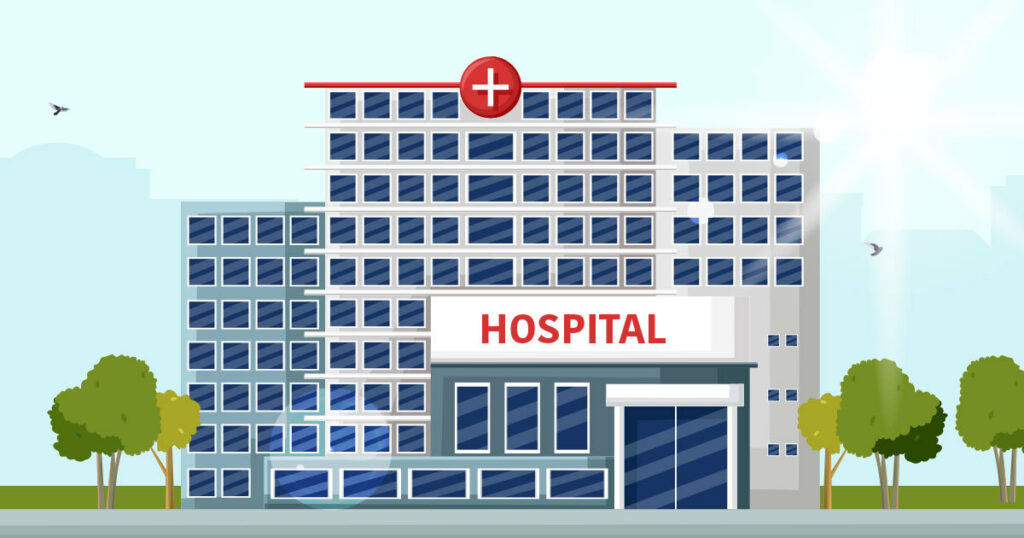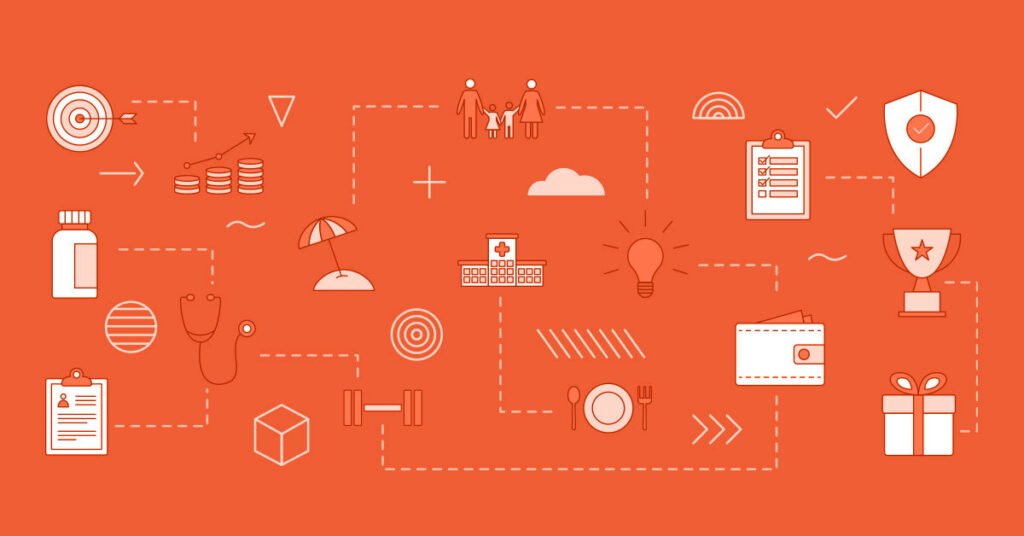Under the standard reimbursement policy, the policyholder pays their medical bills from their own sources at the time of treatment or, in case of hospitalization, after the treatment at the time of discharge.
After this is done, they must submit claim forms, medical records like doctor’s reports, and other medical and hospital bills to prove their medical expenses are genuine and file for the claim. After approval, the insurance company deposits their reimbursed claim amount into the linked bank account.
If something is lacking in the required paperwork or some formality is incomplete, the insurance company has the right to reject the claim. The claim can also be dismissed if there is any mistake in the paperwork submission. This leaves the insured party with hefty medical bills that they paid out of their pocket and no support from their insurance claim.
Cashless Claims Process
Under a cashless claim process, insured parties do not have to pay hospital bills themselves. They just have to let the insurance agent know they will be needing medical treatment. After this, they do not have to be concerned about the payments for medical treatment. The cashless claim policy provides compensation for all medical and hospitalization needs. One only drawback to this process is that it is only offered for treatment at any network or what is commonly known as a panel hospital for the health insurance companies.
Network Hospital
The critical aspect of the cashless claim is the network hospital. Every health insurance company has a list of network hospitals spread all across Pakistan. These are hospitals where the insurance company offers cashless services.
Health insurance companies enlist different hospitals after verifying their pricing and service quality. When the policyholder is treated or hospitalized in a network hospital, they do not have to pay for their treatment at the hospital.
The information about the network hospitals of insurance is usually included in your policy document, and updated lists are available from insurance company websites. If the policyholder is treated in a non-network hospital, the cashless claim may not be possible. However, advance approvals can be requested in case of special treatment or procedure, which is subject to the insurance company’s discretion.
Advantages of a Cashless Claim
A Cashless Medical facility is an advantage offered today by most insurers. It helps avoid unnecessary and complicated reimbursement formalities. Cashless hospitalization is very beneficial, particularly in cases of emergency where the ailing patient or their family may not be able to make immediate arrangements of money for the treatment. Many insurance companies now offer more benefits on cashless policies to cater to the changing healthcare needs.
How Does The Claimless Process Work?
After checking the quality, prices, standards of different procedures, health insurance companies, etc., partner with hospitals that meet their criteria. These hospitals then become part of their hospital network and are listed as panel hospitals.
Insurance companies finalize network hospitals after checking their efficiency and expertise in their medical services. This is necessary to ensure that insured policyholders get their money’s worth, and the insurance company can filter out complaints about hospital service quality.
The panel enlistment is usually renewable every year. Hospitals with low service or treatment quality or multiple issues regarding anything defined by the insurance company’s standards may be removed from the panel list. This process ensures that only hospitals with quality service remain on the list of network hospitals approved by an insurance company.
A company representative is responsible for coordinating with the hospital to settle all the claims between the insurance company, the hospital, and you. Usually, in routine treatment or illnesses, many policyholders do not even know about the insurance company representative liaising with the hospital.
Availing Cashless Medical Insurance
Currently, many insurance companies offer their corporate and individual policyholders insurance cards to ensure that the cardholder receives treatment without needing cash. This is particularly useful for emergencies like accidents or other immediate treatment situations.
The standard procedure to avail of medical treatment under a cashless policy requires that you or someone else fill out a pre-authorization form available on the company’s website or at the hospital’s insurance desk. The filled-out form is then sent to the company for acceptance or rejection of the insurance claim.
There are two conditions for a cashless Medical policy:
Planned Hospitalization:
When you know that you will have to be hospitalized in the next few days, you must fill out a Pre-authorization form before the date of hospitalization. Take the policy card along. Once the form is submitted, it is cross-checked and verified against the information furnished in the policy. It is then sent to the insurance company, which will accept or reject your claim with a valid reason.
Emergency Hospitalization:
In case of emergencies, where immediate medical care is needed and there is no time to apply for a cashless claim, the policyholders are offered a 24-hour window after admission. At the hospital, you or a relative will need to fill out the pre-authorization form, which will be sent to the insurance firm. However, if there is no time to wait for the claim approval, the amount can be paid in cash and reimbursed later from the insurance company.
In short, a medical emergency can dig into your life savings and eat them up. In addition to the physical and emotional suffering involved, people can end up spending a hefty chunk of their savings on hospitalization and treatment.
This is why it is so important to invest in a health insurance plan to create a safety net for any kind of emergency. A health plan may offer a cover against the cost of hospitalization but you still have to pay for it from your pocket at the time of hospitalization. This is why a cashless health insurance plan makes a difference.

Sadia Zaheer holds a Masters in Business Administration from IBA, Karachi. After working in several financial institutions in Client Management, Corporate Lending, Islamic Banking and Product Management she jumped careers to pursue a career in writing.
She is a Finance, Business and HR Development writer with four years of experience. She reads a lot and takes care of her multiple cats to remain calm.



